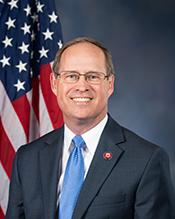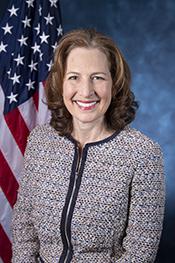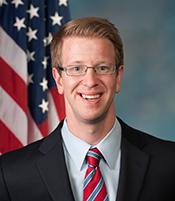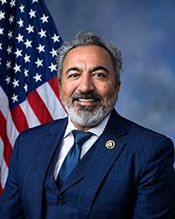0
0
0
No Fees for EFTs Act
12/19/2024, 9:06 AM
Summary of Bill HR 6487
Bill 118 hr 6487, also known as the No Fees for EFTs Act, is a piece of legislation currently being considered by the US Congress. The bill aims to prohibit financial institutions from charging fees for electronic fund transfers (EFTs) made by consumers.
If passed, this bill would have a significant impact on consumers who frequently use EFTs to make payments or transfer funds. By eliminating fees for these transactions, the bill seeks to make electronic banking more accessible and affordable for all Americans.
Proponents of the No Fees for EFTs Act argue that charging fees for electronic fund transfers disproportionately affects low-income individuals who may not have access to traditional banking services. By removing these fees, the bill aims to promote financial inclusion and reduce the financial burden on those who rely on EFTs for their day-to-day transactions. Opponents of the bill, however, may argue that financial institutions rely on fees for electronic fund transfers to cover the costs associated with processing these transactions. They may also argue that eliminating these fees could lead to increased costs for other banking services or reduced access to certain financial products. Overall, the No Fees for EFTs Act is a contentious piece of legislation that raises important questions about the role of fees in the banking industry and the impact of these fees on consumers. As the bill continues to be debated in Congress, it will be important to consider the potential benefits and drawbacks of eliminating fees for electronic fund transfers.
If passed, this bill would have a significant impact on consumers who frequently use EFTs to make payments or transfer funds. By eliminating fees for these transactions, the bill seeks to make electronic banking more accessible and affordable for all Americans.
Proponents of the No Fees for EFTs Act argue that charging fees for electronic fund transfers disproportionately affects low-income individuals who may not have access to traditional banking services. By removing these fees, the bill aims to promote financial inclusion and reduce the financial burden on those who rely on EFTs for their day-to-day transactions. Opponents of the bill, however, may argue that financial institutions rely on fees for electronic fund transfers to cover the costs associated with processing these transactions. They may also argue that eliminating these fees could lead to increased costs for other banking services or reduced access to certain financial products. Overall, the No Fees for EFTs Act is a contentious piece of legislation that raises important questions about the role of fees in the banking industry and the impact of these fees on consumers. As the bill continues to be debated in Congress, it will be important to consider the potential benefits and drawbacks of eliminating fees for electronic fund transfers.
Read the Full Bill
Current Status of Bill HR 6487
Bill HR 6487 is currently in the status of Bill Introduced since November 28, 2023. Bill HR 6487 was introduced during Congress 118 and was introduced to the House on November 28, 2023. Bill HR 6487's most recent activity was Referred to the Subcommittee on Health. as of December 17, 2024
Bipartisan Support of Bill HR 6487
Total Number of Sponsors
2Democrat Sponsors
0Republican Sponsors
2Unaffiliated Sponsors
0Total Number of Cosponsors
23Democrat Cosponsors
15Republican Cosponsors
8Unaffiliated Cosponsors
0Policy Area and Potential Impact of Bill HR 6487
Primary Policy Focus
HealthPotential Impact Areas
- Computers and information technology
- Health care costs and insurance
Alternate Title(s) of Bill HR 6487
No Fees for EFTs Act
No Fees for EFTs Act
To amend title XI of the Social Security Act to prohibit health plans from imposing fees on health care providers for electronic funds transfers and health care payment and remittance advice transactions, and for other purposes.
Comments
Sponsors and Cosponsors of HR 6487
Latest Bills
Providing amounts for the expenses of the Committee on Ethics in the One Hundred Nineteenth Congress.
Bill HRES 131December 12, 2025
Providing for congressional disapproval under chapter 8 of title 5, United States Code, of the rule submitted by the Bureau of Land Management relating to "Central Yukon Record of Decision and Approved Resource Management Plan".
Bill HJRES 106December 12, 2025
Expressing the sense of the House of Representatives in condemning the Government of the People's Republic of China for its harassment and efforts to intimidate American citizens and other individuals on United States soil with the goal of suppressing speech and narratives the People's Republic of China finds unwelcome.
Bill HRES 130December 12, 2025
Providing for congressional disapproval under chapter 8 of title 5, United States Code, of the rule submitted by the Bureau of Land Management relating to "North Dakota Field Office Record of Decision and Approved Resource Management Plan".
Bill HJRES 105December 12, 2025
Providing for congressional disapproval under chapter 8 of title 5, United States Code, of the rule submitted by the Bureau of Land Management relating to "Miles City Field Office Record of Decision and Approved Resource Management Plan Amendment".
Bill HJRES 104December 12, 2025
Providing amounts for the expenses of the Select Committee on the Strategic Competition Between the United States and the Chinese Communist Party in the One Hundred Nineteenth Congress.
Bill HRES 104December 12, 2025
Critical Access for Veterans Care Act
Bill S 1868December 12, 2025
OATH Act of 2025
Bill S 1665December 12, 2025
A bill to extend the authority for modifications to the Second Division Memorial in the District of Columbia.
Bill S 1353December 12, 2025
Saving Our Veterans Lives Act of 2025
Bill S 926December 12, 2025
A bill to amend title XI of the Social Security Act to prohibit health plans from imposing fees on health care providers for electronic funds transfers and health care payment and remittance advice transactions, and for other purposes.
Bill S 3805March 21, 2024





